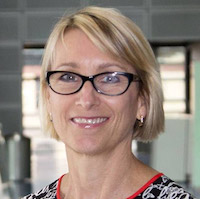News organizations covering the fury over the deaths of more than 200 Black people at the hands of police in 2020 and COVID-19’s brutal toll on people of color faced a reckoning of their own: How well did their newsrooms reflect the nation’s diversity and treat minority groups and women?

Three years ago, the Freedom Forum launched the Power Shift Project to combat the culture that allowed #MeToo scandals to fester in the media world. From our first Power Shift Summit in 2018, we learned that harassment and discrimination are inseparable. As we tackled the cultural change needed to produce equitable workplaces for women, we didn’t focus on their challenges alone.
We took on marginalization, discrimination, harassment and bias affecting all who are underrepresented in journalism. We listened to expert voices, learned from research and bore witness to open wounds.
We developed a curriculum called Workplace Integrity. We then trained leaders from media organizations to deliver it in their newsrooms and classrooms across America, which they did successfully. And then 2020 arrived, bringing new challenges.
NEW TRAINING REFLECTS RECKONING ON INEQUITY
Responding to the nationwide reckoning on racial injustice and the COVID-19 pandemic challenges, this year, we are launching an updated version of the Power Shift Project’s signature Workplace Integrity Training. The curriculum was designed by world-class educator and Freedom Forum Fellow Jill Geisler, who is also the Bill Plante Chair in Leadership & Media Integrity at Loyola University Chicago.
We revised this free, one-of-a-kind interactive training so that trainers can teach the curriculum virtually. The goal of this curriculum is to produce workplaces free of harassment, discrimination and incivility, and filled with opportunity, especially for those who have traditionally been denied it.
The Power Shift Project will lead five Train the Trainers sessions in 2021 for newsroom and journalism classroom leaders who want to learn how to present the curriculum in their organization. Our Train the Trainers program consists of two, 2.5-hour online webinars. And thanks to a CBS Corp. grant, both the training and the Workplace Integrity curriculum kit you receive upon completion are free. REGISTER HERE
So far, more than 250 newsroom and classroom leaders have been trained in the curriculum from major media companies, top university journalism programs and journalism affinity groups.
Here’s what two of our trainers have to say about the impact of Workplace Integrity training:
- “It goes beyond theory to real life,” says Jill Williams, deputy editor of Features and Audience at the Milwaukee Journal Sentinel. “I’ve marveled at how people share deeply personal moments about racism, discrimination, sexism and gender inequality in newsrooms and how that has impacted them. … Their candor opened the eyes of many people who are now challenging themselves to do better and be better.”
- Jean Hodges, senior director of News Culture and Communications at Gannett, says, “As I’ve guided people through the Workplace Integrity training, I’ve seen people challenge their own biases and learn from one another about different approaches to difficult conversations. A healthy workplace is foundational for our staff to do their best work and this training offers practical steps to get us there.”
AWARENESS: A FIRST STEP TO MAKING A CHANGE
The problems of inequity and injustice in U.S. newsrooms and the world aren’t easily resolved. But taking a hard look at our history with an eye to a more equitable future is a start. Fifty-three years ago, the Kerner Commission report on the causes of racial unrest that roiled cities in 1967 faulted racism and the news media, in part, for not adequately representing the lives of Black Americans due to a lack of Black journalists.
In September 2020, editors at the Los Angeles Times produced a powerful rebuke of the newspaper’s past coverage, writing that “While the paper has done groundbreaking and important work highlighting the issues faced by communities of color, it has also often displayed at best a blind spot, at worst an outright hostility, for the city’s nonwhite population, one both rooted and reflected in a shortage of Indigenous, Black, Latino, Asian and other people of color in its newsroom.”
While the Los Angeles Times searches for a new top editor, groundbreaking leadership changes are finally happening in other news organizations across the country:
- At MSNBC, Rashida Jones will be the first Black woman to lead a major news network;
- At the Miami Herald, Monica Richardson will be the first Black female executive editor in the newspaper’s 177-year history;
- At the Dow Jones News Fund journalism mentorship program, Washington Post veteran Shirley Carswell is the new executive director.
Systemic change starts now. Resolve for 2021 that your newsroom will be a place of civility and opportunity for all, especially those who have been denied it in the past.
Consider the Power Shift Project’s Workplace Integrity Curriculum your ally on the path to better, more diverse newsrooms and the improved journalism that will result.
